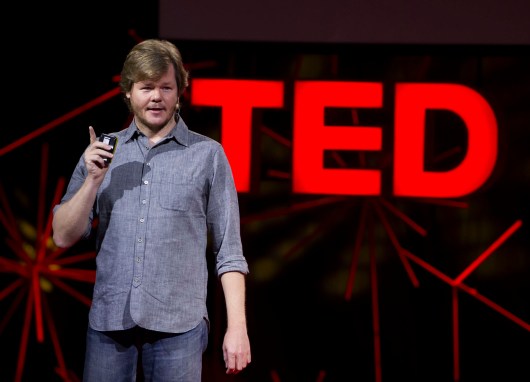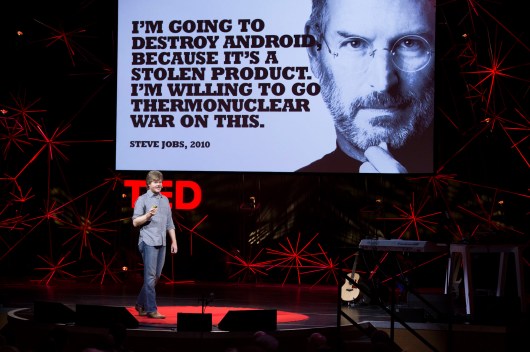In 1964 Bob Dylan was near the pinnacle of his career, pouring out now-classic songs at a near-miraculous pace. But a few critics claim that he is stealing other people’s songs. Could it be true? Ferguson plays “Nottamun Town,” a traditional folks song, then Bob Dylan’s “Masters of War,” and asks us to hear the similarity — and it’s clear the melody and structure relate. He plays “The Patriot Game” by Dominic Behan, then Dylan’s “With God on Our Side.” (In this case Dylan admits he probably hear the original and forgot about it, and later it probably “bubbled back up in his brain.”) Finally, he plays “Who’s Gonna Buy You Ribbons” by Paul Clayton, then “Don’t Think Twice, It’s Alright” by Bob Dylan — and yes, the lyrics are very similar.
It’s estimated that 2/3 of the melodies Dylan used in his early songs were borrowed, a very typical number for folk singers. Woody Guthrie told him: “Don’t worry about tunes. Take a tune, sing high when they sing low, sing fast when they sing slow, and you’ve got a new tune.”
Decades later, when Danger Mouse dropped his Grey Album, combining the Beatles’ White Album and Jay-Z’s Black Albumm Apple Records sent him a cease-and-desist order. The difference, asks Ferguson? “This is a remix. It’s new media created from old media. Copy, transform, combine — these are the basic elements of all creativity. I think everyting is a remix, and I think this is a better way to conceive of creativity.”
American copyright and patent laws run counter to this notion that we build on the ideas of others, but it’s a principle that creators in most fields acknowledge. Take Henry Ford, who said “I invented nothing new. I simply assembed the discoveris of other men, behind whom were centuries of work.” This happens in technology as well. Ferguson shows a clip from a Steve Jobs keynote in 2007 in which he introduces multi-touch on the iPhone. Jobs: “We invented it, and boy are we going to patent it.” Cue Jeff Han, in a clip from TED2006 in February a year earlier, saying: “This isn’t new. It’s the small pieces that are different.”
Here we see patents doing counter to what they are intended to do, which is promote innovation. There were no software patents in the ’80s, when Xerox pioneered the GUI. Would a young and inexperienced Apple have withstood the legal assault from a much larger company like Xerox? Early Steve Jobs quoted Picasso (great artists steal); more recently he said: “I’m going to destroy Android because it’s a stolen product. I’m willing to to go thermonuclear on this.” Economists will call this loss aversion.
He takes on the laws that treat creative works as property and their unintended negative effects. Massive rewards or settlements plus huge legal fees create a strong cognitve bias against loss. Result: the last four years of lawsuits over smartphones. Is this promoting the progress of technology and the arts?
Dylan, much later in life, recorded a song based on a tune by Blind Willie McTell, who said, “I jump ’em from other writers, but I arrange ’em my own way.”
Watch Kirby’s TEDxTalk from TEDxFortWayne >>
Photos: James Duncan Davidson


Comments (6)
Pingback: Remix Cult: How and WHY? | You Can Take this. But I Can Take It Back
Pingback: Looking forward, looking back: TEDGlobal 2012 recap - Entrepreneur News | Australian Society of Entrepreneurs
Pingback: Remix, Mashups, Aggregation, Plagiarism oh my | ClintLalonde.net
Pingback: Duplicate Dancers
Pingback: Everything is a Remix | Ashley Kelly Tata
Pingback: Articles of Interest 6/29/2012 « National Creativity Network